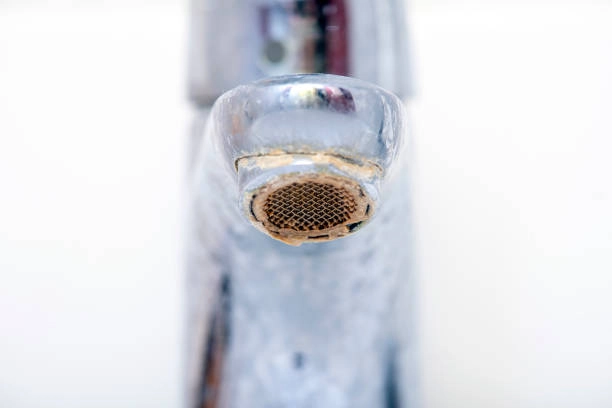Water quality is a vital aspect of our daily lives, and addressing concerns like hard water is essential for a comfortable and efficient living environment. Hard water, which contains high levels of minerals, can lead to various issues such as limescale buildup, reduced soap efficiency, and dry skin and hair.
Fortunately, there are effective solutions available to combat these problems. Water softeners and hard water filters are two distinct types of water treatment systems that serve different purposes in addressing water quality issues. While both aim to improve water quality, their mechanisms and the specific problems they address differ.
What Does a Water Softener Do?
The job of a water softener is to clear the problems associated with hard water. Water softeners work by removing said minerals from the water through a process called ion exchange. They utilize a tank filled with resin beads that attract calcium and magnesium ions and replace them with sodium ions. This ion exchange effectively softens the water by reducing the mineral content.
Individuals with dry skin or hair may experience relief and improvements in their overall comfort with water that’s softened in advance.
Moreover, softened water can enhance the effectiveness of soaps and shampoos, allowing for better lathering and cleansing. This can be particularly beneficial for individuals with sensitive skin or conditions like eczema, as it helps maintain a gentle and soothing bathing experience.
By using a water softener for the shower head, the occurrence of limescale is significantly reduced. This helps preserve the longevity and functionality of fittings, including pipes, faucets, showerheads, and water-using appliances like dishwashers and washing machines.

While water softeners can contribute to improved health conditions, it is essential to consult a medical professional to identify if hard water indeed is the main cause of your present condition.
How Does a Hard Water Filter Work?
A hard water filter, on the other hand, is a broader term that encompasses various filtration systems specifically designed to target the removal or reduction of minerals causing water hardness. While water softeners primarily focus on removing calcium and magnesium ions, hard water filters can employ different filtration technologies to address additional impurities in the water.
They incorporate activated carbon filters, sediment filters, or other media to remove contaminants such as sediment, chlorine, bacteria, and heavy metals. In addition to reducing softening the water, hard water filters provide comprehensive water purification.
Water Softener vs Hard Water Filter – Use One or Both?
Water Softeners and Hard Water Filters offer distinct advantages and cater to different aspects of water quality.
A water softener is ideal if your primary concern is addressing the negative effects of hard water, such as limescale buildup, reduced soap efficiency, and improved skin and hair.
A hard water filter offers a more comprehensive water treatment approach. This can result in overall better water quality and taste. A hard water filter can be a suitable choice if you are concerned about not only water softness but also other potential contaminants in your water supply.
To determine which option is better for you, consider the specific water quality issues you are experiencing, your budget, and your personal preferences.
If you primarily want to address water hardness, a water softener may be the more suitable choice. However, if you desire comprehensive water purification beyond water hardness, a hard water filter can be the better option.
It’s also worth noting that in some cases, combining both a water softener and a hard water filter may be necessary to achieve optimal water quality. This combination allows for comprehensive water treatment, effectively addressing both hardness and other impurities.
Testing the Water Hardness Helps
You can test the hardness of your water in various ways. DIY water testing kits are available for home use, or you can contact a professional water testing laboratory to obtain a comprehensive analysis of your water sample.
By testing your water, you can accurately determine the hardness level and identify any additional issues that may be affecting water quality. This information will guide you in selecting the most appropriate treatment option for your specific needs.
